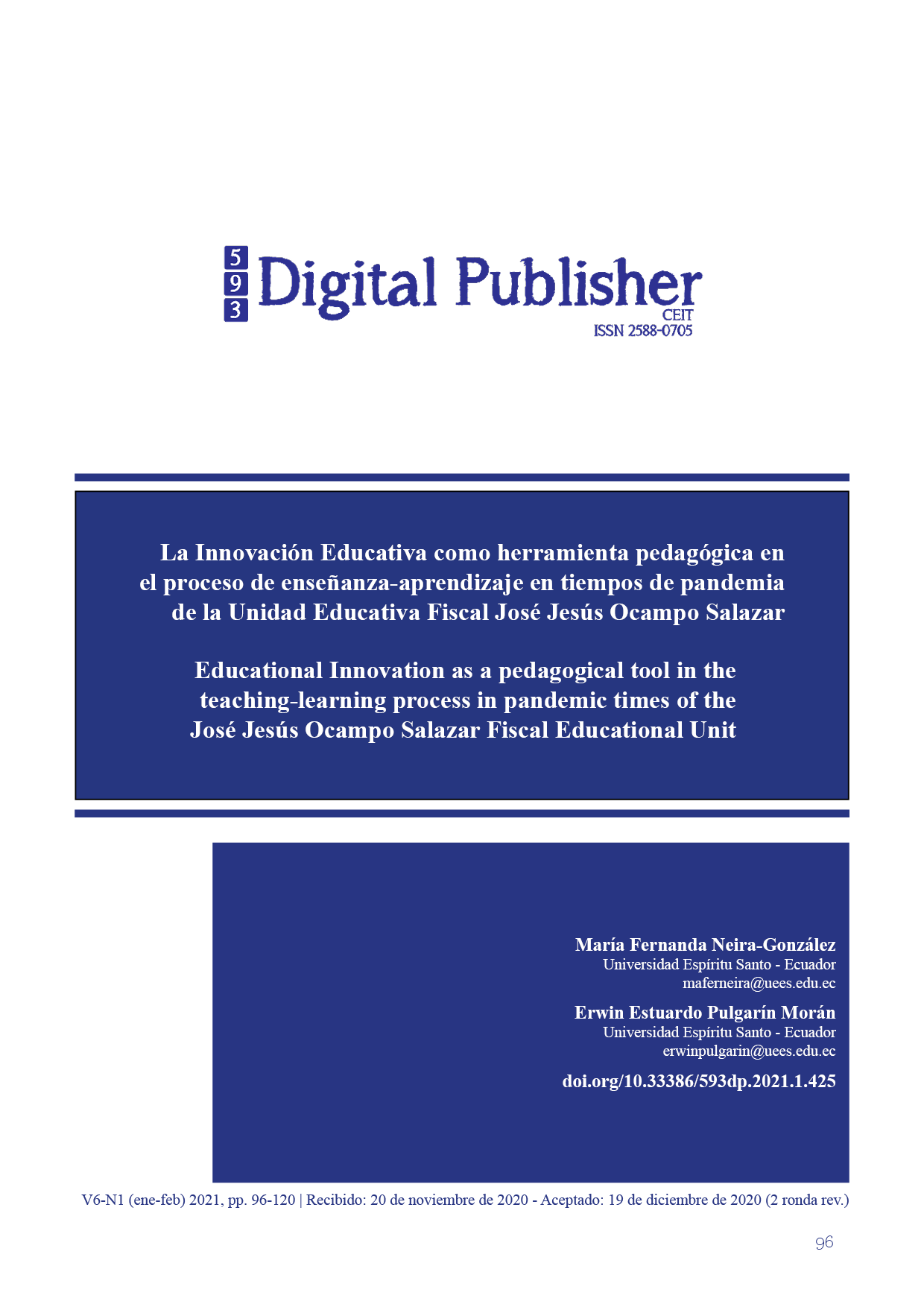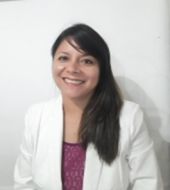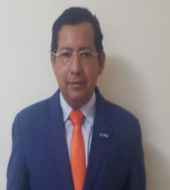Educational Innovation as a pedagogical tool in the teaching-learning process in pandemic times of the José Jesús Ocampo Salazar Fiscal Educational Unit
Main Article Content
Abstract
This research arises due to the need to innovate education during the Covid-19 pandemic, which has affected a large part of the world population in socioeconomic, health and education aspects, so measures were rethought in the face of the health crisis, especially for the preservation of the health of the educational community and in addition to implementing pedagogical tools to apply them synchronously and asynchronously, facilitating the teaching-learning process. For this reason, the objective of this article is elaborate a pedagogic strategy to theorically fundament the influence of educational innovation as a pedagogical resource in the teaching-learning process in times of pandemic in the José Jesús Ocampo Salazar Fiscal Education Unit. Will be used the mixed research approach in the development of our work, in order to collect data and have quantitative and qualitative instruments available. In conclusion, these theoretical foundations can be applied by the teaching staff of this and all educational institutions that require innovation in education, with the respective methodological modifications for the classes and the development of activities in a synchronous and asynchronous way that allow the process to be more effective of teaching and learning of all socioeconomic strata and cognitive levels.
Downloads
Article Details

This work is licensed under a Creative Commons Attribution-NonCommercial-ShareAlike 4.0 International License.
1. Derechos de autor
Las obras que se publican en 593 Digital Publisher CEIT están sujetas a los siguientes términos:
1.1. 593 Digital Publisher CEIT, conserva los derechos patrimoniales (copyright) de las obras publicadas, favorece y permite la reutilización de las mismas bajo la licencia Licencia Creative Commons 4.0 de Reconocimiento-NoComercial-CompartirIgual 4.0, por lo cual se pueden copiar, usar, difundir, transmitir y exponer públicamente, siempre que:
1.1.a. Se cite la autoría y fuente original de su publicación (revista, editorial, URL).
1.1.b. No se usen para fines comerciales u onerosos.
1.1.c. Se mencione la existencia y especificaciones de esta licencia de uso.
References
Arancibia Martini, H., Castillo Armijo, P., & Saldaña Fernández, J. (2018). Innovación Educativa:perspectivas y desafíos. Chile: Universidad de Valparaíso. Obtenido de file:///C:/Users/alons_000/Downloads/Dialnet-InnovacionEducativaPerspectivasYDesafios-719973%20(1).pdf
Arias Gómez, J., Villasís Keever, M. Á., & Miranda Novales, M. G. (April - June de 2016). The research protocol III: the study population. ,. RAM. Allergy Mexico, 63(2), 201-206. Obtenido de Retrieved from https://www.redalyc.org/pdf/4867/486755023011.pdf
Bocanegra, R. H. (2018). Modelo de gestión de calidad basado en la ISO 90001:2015 en la empresa Orión. (S.A.C. Revista Pueblo Continente, 335-341.
Bonilla Guachamín, J. A. (2020). Las Dos Caras de la Educación en el Covid-19. http://cienciamerica.uti.edu.ec/. Obtenido de http://cienciamerica.uti.edu.ec/openjournal/index.php/uti/article/view/294/462
Constitucion de la Republica del Ecuador. (20 de 10 de 2008). Constitucion de la Republica del Educador. (LEXIS, Ed.) Obtenido de https://www.oas.org/juridico/pdfs/mesicic4_ecu_const.pdf
Díaz Muñoz, G., & Espinosa, D. G. (2018). Innovation: a fundamental bulwark for organizations. UIDE monthly magazine Guayaquil extension,, 212-229. Obtenido de Retrieved from file: /// C: /Users/alons_000/Downloads/Dialnet-Innovacion.pdf
El Telégrafo. (02 de junio de 2020). Las aulas virtuales se abren para 2’571.524 estudiantes. Especial de coronavirus. Recuperado el 18 de julio de 2020, de https://www.eltelegrafo.com.ec/noticias/sociedad/6/aulas-virtuales-estudiantes
El Universo. (30 de junio de 2020). Ecuador: siguen suspendidas las clases presenciales. Obtenido de https://www.eluniverso.com/noticias/2020/06/30/nota/7890339/ecuador-siguen-suspendidas-clases-presenciales-todos-niveles
García Gajardo, F., Fonseca Grandón, G., & Concha Gfell, L. (2015). Learning and Academic Performance in Higher Education: A Comparative Study. Revista Investigativa de Educación.Indezada by Redaly Scielo, 15. Obtained from, 15. Obtenido de https://www.researchgate.net/publication/282389513_Aprendizaje_y_Redamientos_Academico_en_Educacion_Superior_Un_Estudio_Comparado
González Contreras, T. (mayo de 2014). La importancia de la Innovación y el Emprendimiento en los docentes del Sistema Educacional Chileno. Aspectos a considerar en la reflexión. Revista Electrónica Gestión de las Personas y Tecnología, vol. 7,(núm. 19), pp. 68-78. Recuperado el 15 de julio de 2020, de http://www.redalyc.org/articulo.oa?id=477847107006
Gonzalez de Pirela, N., & Alonso, P. (2017). Método interacción constructiva investigativa: herramienta educativa para la gestión del conocimiento. En Gestión del conocimiento Perspectiva Multidisciplinaria (págs. 198-222). Centro de Investigacion Cedinter.
Gonzalez Gonzalez, N. J. (2019). Formacion docente centrada en investigacion. Maracaibo Estado Zulia: Vice Rectorado Administrativo de Luz.
González, N. j. (2017). Formación docente centrada en investicación. Maracaibo-Estado Zulia: Universidad del Zulia.
Guerrero-Salazar, C. V., Prieto-López, Y., & Pacheco Montoya, D. A. (02 de septiembre de 2020). La innovación de modelos pedagógicos y su importancia en el desarrollo de la calidad institucional. Revista 593 Digital Publisher CEIT, V5(N5), pp. 50-64. doi:doi.org/10.33386/593dp.2020.5-2.317
Hernández Medina, A. R. (Diciembre de 2016). Aproximación teórica a modelo de cambio planeado de gestión organizacional para la innovación educativa desde la Teoría de la Complejidad y Empowerment. (U. P. Libertador, Ed.) Educ@ción en Contexto,, Vol. II(N° Especial), 112. Recuperado el 29 de 09 de 2020
Hernández Sampieri, R. F. (2019). Metodología de la investigación. Mexico. D.F: McGraw-Hill.
La Organización de Estados Iberoamericanos para la Educación, l. C. (30 de julio de 2020). La OEI. Obtenido de https://www.oei.es/covid-19-educacion/educacion-panoramica: https://www.oei.es/acercade/que-es-la-oei
LEY ORGÁNICA DE EDUCACIÓN. (25 de agosto de 2015). Obtenido de https://educacion.gob.ec/wp-content/uploads/downloads/2017/02/Ley_Organica_de_Educacion_Intercultural_LOEI_codificado.pdf
Maraza Quispe, B., Cuadros Paz, L., Fernández Gambarini, W. C., Alay Palomino, Y., & Chillitupa Quispihuanca, A. (julio-diciembre de 2019). Análisis de las herramientas de gamificación online Kahoot y Quizizz. Referencias Pedagógicas, Vol. 7(2), pp.339-362. Recuperado el 16 de julio de 2020, de http://rrp.cujae.edu.cu/index.php/rrp/article/view/193/216
MinEduc. (2 de Diciembre de 2019). Proyecto Educativo Institucional para la Convivencia Armónica. Recuperado el 07 de Abril de 2020, de https://cooperaciondocente.com/manua-para-la-implementacion-y-evaluacion-de-los-estandares-de-calidad/
Ministerio de Educacion. (2020). Plan Educativo aprendamos juntos en casa. Recuperado el 2020, de www.educacion.gob.ec
Ortiz Ocaña, A. (2013). MODELOS PEDAGÓGICOS Y TEORÍAS DEL APRENDIZAJE. Ediciones de la U. Recuperado el 21 de 09 de 2020
Paz-y-Miño, C. (Miércoles, 27 de mayo de 2020). El genoma del Covid 19: su origen, evolución y mutaciones. Recuperado el Lunes 8 de septiembre de 2020, de https://www.edicionmedica.ec/opinion/el-genoma-del-covid-19-su-origen-evolucion-y-mutaciones-2084
Perez Esclarin, A. (2015). Pedagogía del amor y la ternura. (pág. 1). Venezuela: https://wp.me/p2GlHj-jX.
Real Academia Española . (03 de 10 de 2019). Dicionario Real Española REA.
RIKAP, C. (1 de marzo de 2011). La innovación: del azar a la transferencia tecnológica. Revista Estudiantil Latinoamericana de Ciencias Sociales(No. 01), p. 1-18. Recuperado el 07 de 09 de 2020, de http://hdl.handle.net/10469/7559
Rojas, M. (2015). Manual de Redacción científica. Red de Revistas Científicas de América Latina, el Caribe, España y Portugal Proyecto académico sin fines de lucro, desarrollado bajo la iniciativa de acceso abierto, 250.
Sánchez-Otero, M., García-Guiliany, J., Steffens, S., & o Hernández- Palma, E. H. (2019). Estrategias Pedagógicas en Procesos de Enseñanza y Aprendizaje en la Educación Superior incluyendo Tecnologías de la Información y las Comunicaciones. 122-155. Obtenido de https://scielo.conicyt.cl/scielo.php?script=sci_arttext&pid=S0718-07642019000300277
Torres, J., & Velandia, S. (2017). Influencia de las Estrategias Pedagógicas en los Procesos de Aprendizaje de los Estudiantes de una Institución de Básica Primaria de la Ciudad de Bucaramanga,. Bucaramanga Colombia: Universidad de Bucaramanga.



